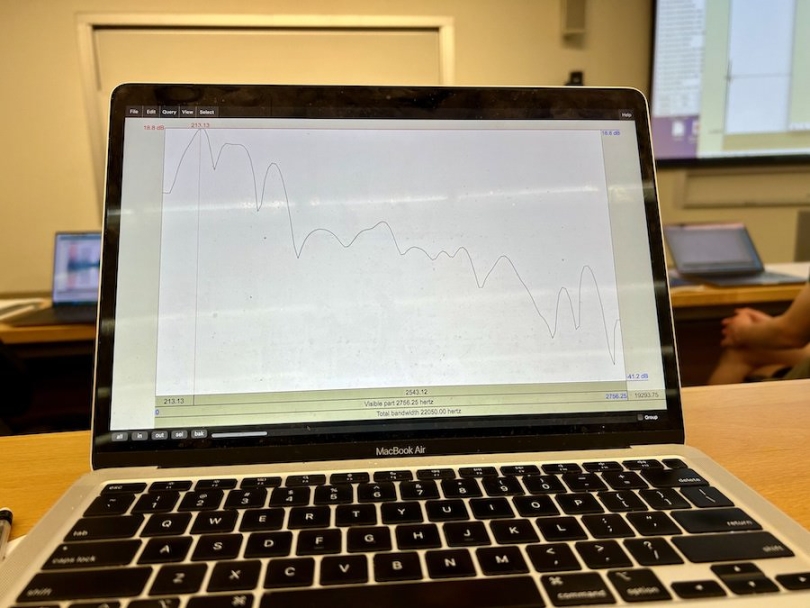
Experimental Phonetics
Prof. Stanford, the Linguistics department chair, was the primary topic of my "Why Dartmouth" essay four and a half years ago. When I first visited Dartmouth, he dropped everything he was doing to talk to me, a random high schooler flipping through a brochure near his office about his sociophonetics research for an hour. Simply put, this didn't happen to me at any other school. Fast forward to today–just a few weeks from graduation–and not only is Prof. Stanford my major advisor, but I've had the chance to take classes with him several times at Dartmouth. I took LING 35: Field Methods with him sophomore fall and LING 17: Sociolinguistics sophomore spring. This term, my senior spring, even though I'm finished with the major requirements and don't need it, I decided to take one last class with Prof. Stanford while I could because I enjoy being in his classroom so much!

The course I'm taking with Prof. Stanford this term is LING 20: Experimental Phonetics. It's the first linguistics class I've taken here that fulfills the Technology or Applied Science distributive requirement, so the approach to the material is a slightly different angle than I'm used to. The official course description is as follows: "This course is an introduction to speech physiology, articulation, and the acoustic analysis of speech. Students will acquire knowledge of the experimental and computational techniques that are relevant for investigating the production of speech. This includes equipment functioning, data collection and recording techniques, techniques for analyzing speech acoustics, and analysis of data from a variety of languages."
One of the key elements of the class is a term-long partnered research project on a phonetically under-researched language of your (and your partner's) choice. I'm working with a fellow senior linguistics major and another classmate who speaks the language on the phonetics of Brazilian Portuguese, and we've had the chance to use the department's soundproof sound booth and recording equipment to make recordings of words, then use the phonetics software Praat to perform acoustic analysis of various sounds in the language.
Another awesome part of LING 20 so far has been the in-class experiments and demonstrations! Just last week, several (volunteer!) classmates painted their mouths with a concoction of olive oil and activated charcoal powder to create palatograms of their fricatives so we could more clearly visualize which parts of the mouth functioned as articulators for which sounds. It sounds a bit silly, but it's not an uncommon phonetic research practice and was a really helpful learning tool. I've enjoyed each of Prof. Stanford's classes here, but all the unique hands-on opportunities in Experimental Phonetics have been extra delightful!


















